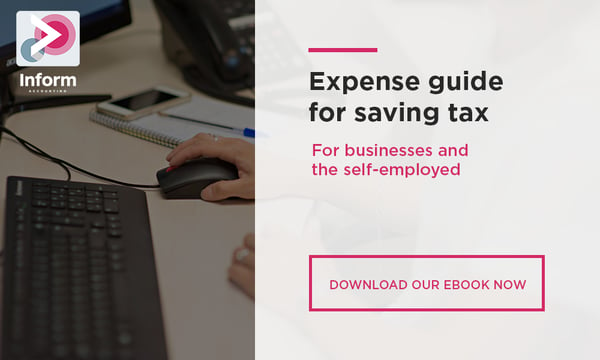BLOG
Holiday entitlement and pay during coronavirus (COVID-19)

If you’ve put employees on furlough during the pandemic, they’ll likely have a large amount of accrued holiday. Sounds great - for them! The problem arises when employees return to work with lots of carried over holiday, looking to take off large periods of time. This can cause huge staffing issues further down the line.
So what should you do as best practice to prevent this from happening?
- In the first instance, you should encourage furloughed staff to book holidays in a similar pattern to a ‘normal’ year. This means if they are going on holiday, and had it not been for furlough they would otherwise have had to book annual leave, then they should do so.
- Be open with your employees and explain the business need behind it. It is to ensure business continuity and prevent any staffing issues further down the line.
- The same goes for employees who are working from home, who might look to save their holidays until post-lockdown. As well as the potential issues for running the business, it doesn't do anyone any good from a wellbeing perspective to take nil holiday for six months.
- If necessary (if employees don't respond to this), you can enforce the rules in law, requiring employees to take holiday. Whilst this may not be the ideal situation, it does protect your business from the potential issues that could arise as a result of mass holiday requests.
Below we’ve summarised the key points you need to be aware of as an employer, to make sure you don’t get caught out by this.
So, let’s get into the nitty gritty...
Almost all workers, including zero-hour contracted workers and those on irregular hours contracts, are legally entitled to 5.6 weeks’ paid holiday per year, which has its roots in EU and UK law.
Workers who have been placed on furlough continue to accrue statutory holiday entitlements, and any additional holiday provided for under their employment contract.
Taking holiday
Employers can require workers to take holiday and cancel a worker’s holiday, if they give enough notice to the worker.
The required notice periods are:
- double the length of the holiday if the employer wishes to require a worker to take holiday on particular days
- the length of the planned holiday if the employer wishes to cancel a worker’s holiday or require the worker not to take holiday on particular dates
Workers on furlough can take holiday without disrupting their furlough. The notice requirements for their employer requiring a worker to take leave or to refuse a request for leave continue to apply.
Bank Holidays
Where necessary, employers can require workers who would usually take bank holidays as holiday to work instead, using the standard notice periods above but must still ensure that the workers receive their statutory holiday entitlement for the year. There is no statutory right to time off for bank holidays, but they may be included in an employee’s contract.
Where a bank holiday falls inside a worker’s period of furlough and the worker would have usually worked the bank holiday, their furlough will be unaffected by the bank holiday. However, if the worker would usually have had the bank holiday as annual leave, there are 2 options.
- The bank holiday is taken as annual leave - the employer must pay the correct holiday pay for the worker.
- The holiday can be deferred till a later date, but the worker should still receive their full holiday entitlement.
In both situations, the treatment must be agreed between the employer and employee.
Holiday Pay
Holiday pay, whether the worker is on furlough or not, should be calculated in line with current legislation, based on a worker’s usual earnings.
If a worker on furlough takes annual leave, an employer must calculate and pay the correct holiday pay in accordance with current legislation - see the standard guidance. Where this calculated rate is above the pay the worker receives while on furlough, the employer must pay the difference. However, as taking holiday does not break the furlough period, the employer can continue to claim the 80% grant from the government to cover most of the cost of holiday pay.
Carrying annual leave into future years - new legislation
The government has passed new emergency legislation to ensure businesses have the flexibility they need to respond to the coronavirus pandemic and to protect workers from losing their statutory holiday entitlement. These regulations enable workers to carry holiday forward where the impact of coronavirus means that it has not been reasonably practicable to take it in the leave year to which it relates.
Where it has not been reasonably practicable for the worker to take some or all of the 4 weeks’ holiday due to the effects of coronavirus, the untaken amount may be carried forward into the following 2 leave years. When calculating how much holiday a worker can carry forwards, employers must give workers the opportunity to take any leave that they cannot carry forward before the end of the leave year.
Workers who are on furlough are unlikely to need to carry forward statutory annual leave, as they will be able to take it during the furlough period. However, to do so they must be paid the correct holiday pay which is likely to be higher than the rate of pay that will be covered by government grants, with the employer making up the difference.
If the employer is unable to fund the difference, it is likely that this would make it not reasonably practicable for the worker to take their leave, enabling the worker to carry their annual leave forwards.
What does ‘reasonably practical’ mean?
More information on how holiday is to be treated for furloughed employees can be found on the GOV website.
Disclaimer
This guidance should not be treated as legal advice. Employers and workers should always check individual contracts and if necessary seek independent legal advice.
Read more of Inform's tax blogs:
Inform Accounting wins at the Accounting Excellence Awards
Five furlough changes you need to know




.jpg?width=1500&height=1000&name=amy-hirschi-K0c8ko3e6AA-unsplash-(5).jpg)

